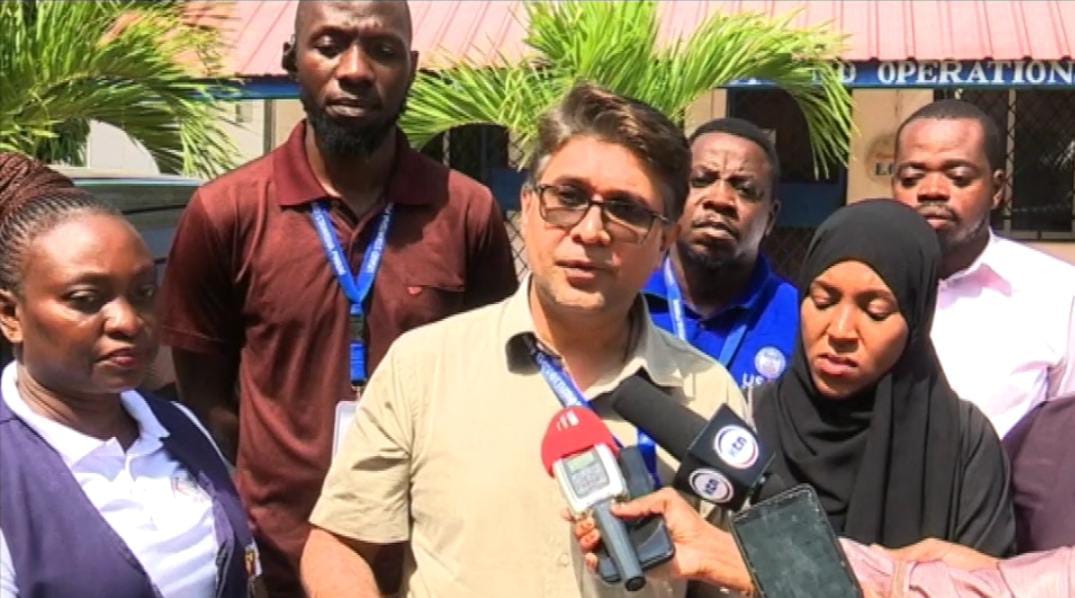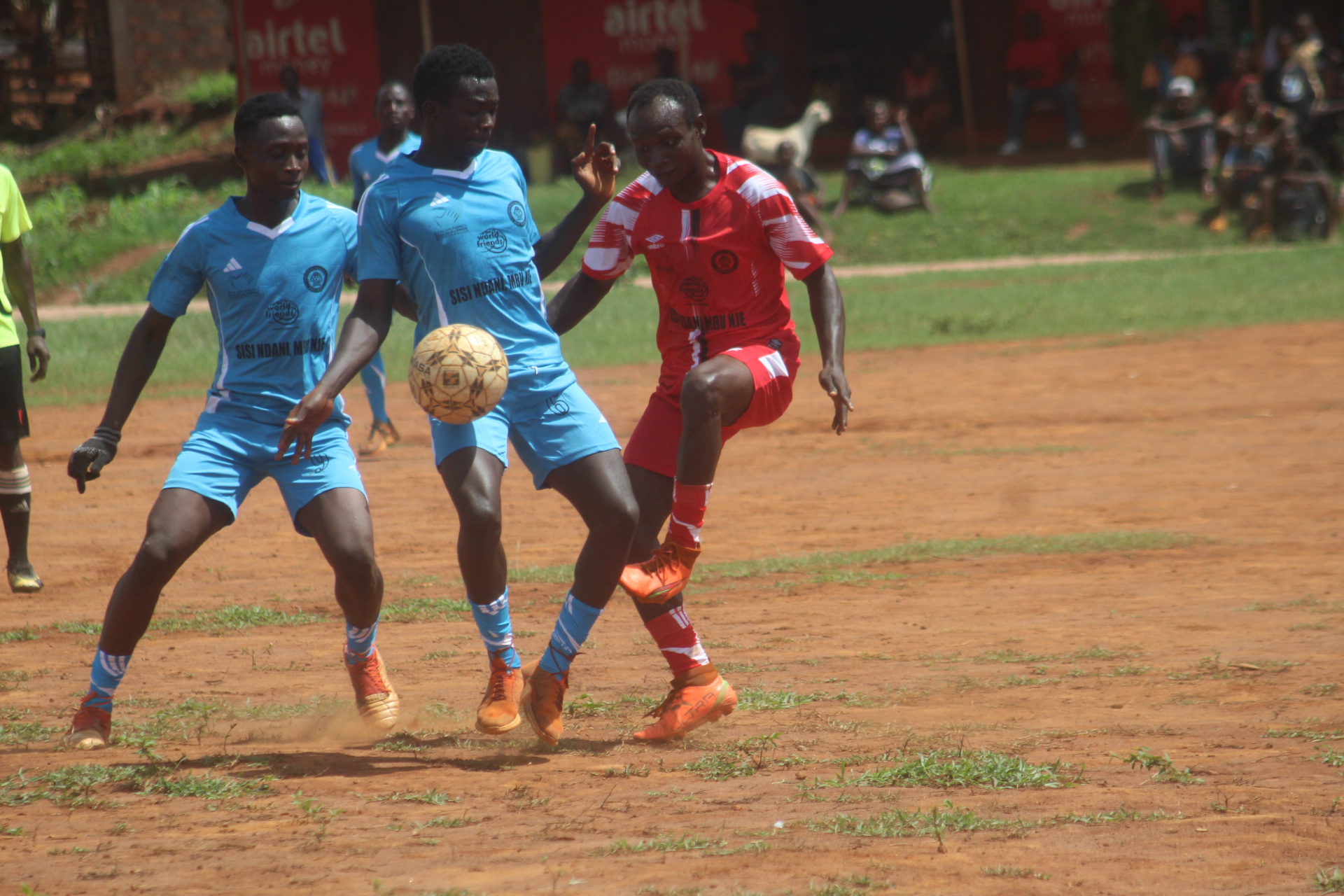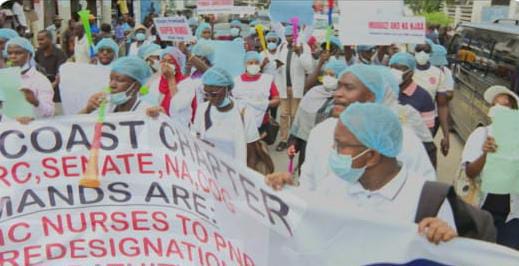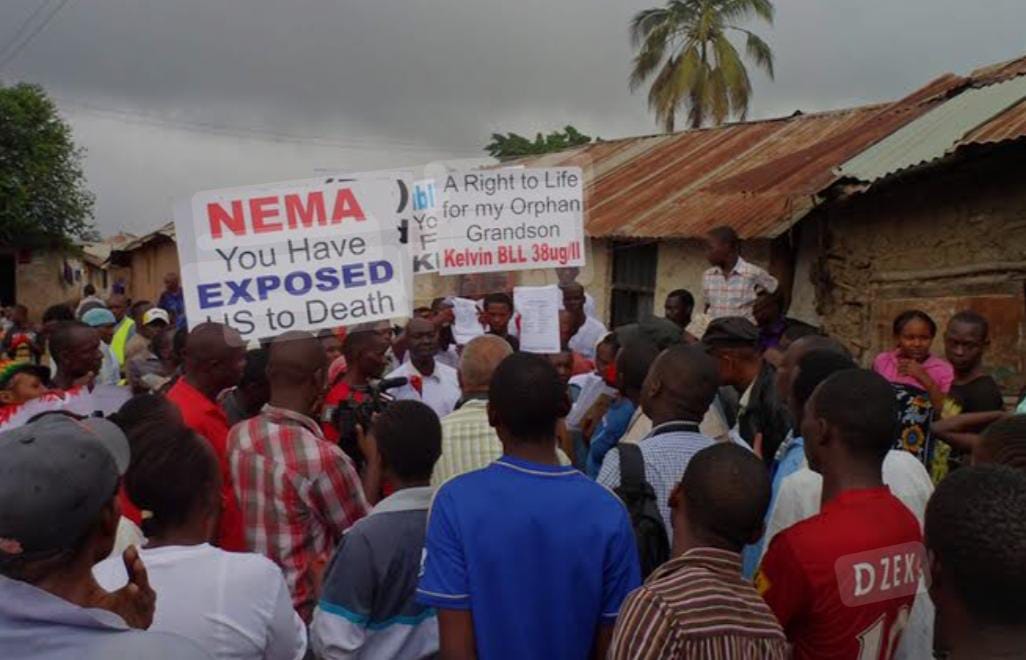Alice Mumba a Community Health Promoter at Rabai Sub County Hospital. Photo by Anthony Zoka.
She’s 66 and has six children of her own. Her journey has moved her from being a traditional birth attendant to a dedicated community health promoter, changing the lives of countless women in her community along the way.
Meet Alice Mumba, a beacon of hope and resilience from Manoloni village in Rabai Sub county-Kilifi County.
Alice’s entry into traditional birth practices began at home. She learnt midwifery skills from her mother-in-law by observing and assisting her. Within a short time, she started delivering babies in her village, a practice she continued for six years.
“In a month, I would help no less than 20 women deliver,” she recalls.
As a traditional birth attendant, Alice also offered massage services to pregnant women, charging between 30 to 50 shillings per session. Each massage took about five minutes, with clients required to bring their own coconut oil. Deliveries cost 500 shillings.
The traditional practice of ‘kukandwa’, or massage, was a common remedy for the discomforts of pregnancy for women. It was believed to help align the baby and alleviate pain.
Alice was fortunate. She never experienced a situation where a mother and newborn lost their lives during delivery. But she knew of cases where mothers died during home deliveries. Alice vividly remembers a harrowing incident that underlined the risks of her work.
“One day at around 11:00 am I received a client. After helping her deliver the baby, I think her blood pressure shot up. With the help of local youths, we placed her in a wheelbarrow and rushed her to the hospital. She was admitted for two days and received treatment,” Alice recounts.
Khadija Juma, a mother of six, was among the clients who sought massage services from Alice Mumba. Khadija’s mother-in-law played a pivotal role in her pregnancy care, ensuring she attended the massage sessions whenever she felt any discomfort.
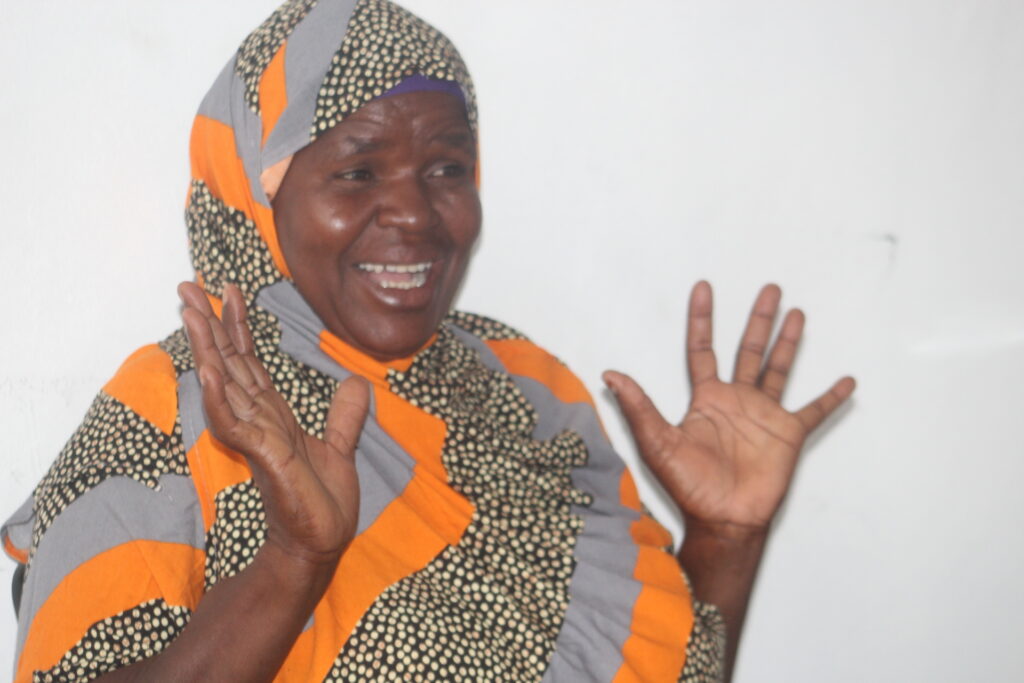
Khadija Juma during the Interview. Photo by Anthony Zoka
“When my mother in-law saw I was late leaving my house in the morning, she would come and check on me. If I was in pain, she would advise me to go for a massage,” Khadija recalls.
Khadija said the challenges of daily life, including fetching water and firewood, often exacerbated her discomfort.
“We had to walk long distances to find water and firewood. The terrain was hilly, and as the woman of the house, I had no choice but to go, even when I was pregnant. After completing all the household chores, I couldn’t walk or do any work because of the pain. So, I would visit the midwife for a massage and relief, thinking the baby might be in the wrong position,” she explains.
Despite the hardships, Khadija is grateful that all her children were born healthy. “It’s a blessing I cherish,” she says.
Common risks associated with Massage during pregnancy
Dr. Anisa Mburu, a gynecologic oncologist, strongly opposed the habit of massaging pregnant women. She says traditional birth attendants lack the necessary skills and equipment to handle complications during pregnancy and delivery.
“For example, if the mother is bleeding or the baby is stuck and the woman needs an emergency cesarean section, the traditional birth attendant may not be able to make timely decisions or transfer the patient to hospital care quickly enough. They also lack the skills and equipment to perform the surgery,” explained Dr. Mburu.
Dr. Mburu advised against massages during pregnancy, particularly womb massages.
“The type of massage performed can be so aggressive that it may lead to placental abruption, where the placenta separates. This can cause internal hemorrhage, and by the time the situation is recognized, it might be too late, posing a significant risk to both mother and baby, potentially resulting in the loss of both lives,” she warns.
Maternal mortality refers to deaths due to complications from pregnancy or childbirth within 42 days after birth or termination of a pregnancy. This does not include deaths that occur due to accident or violence.
According to the National Library of Medicine, globally, this has declined from 342 deaths to 211 deaths per 100,000 live births from 2000 to 2017, respectively.
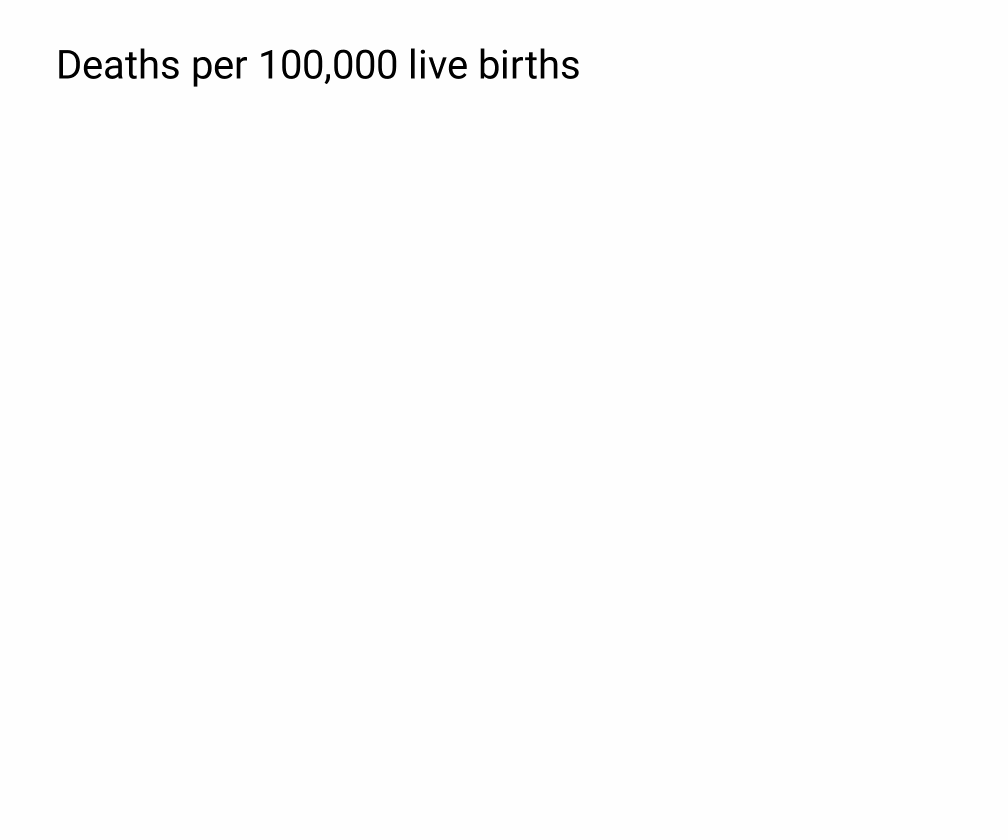
Integrating Culture and Health Care for Better Maternal and Child Health
In 2008, Alice’s life took a turn when health workers from the nearby Rabai Sub County Hospital began educating traditional birth attendants on the importance of modern medical practices. Alice was among those selected for this training.
Later in 2020, the same exercise was conducted, this time incorporating Kaya elders.
Kayas are often located within sacred forests and are considered intrinsic sources of ritual power and cultural identity. They also serve as places of prayer for members of the Mijikenda ethnic group.
Kaya elders are not only custodians of cultural traditions but also guardians of forest diversity, believing that these forests are vital for the sustainable well-being of the community and humanity at large.
This collaboration aims to bridge the gap between cultural traditions and modern healthcare guidelines. It tries to save lives by empowering women with information and addressing cultural taboos to improve maternal and child health.
“I used to massage pregnant women, but I stopped because of the potential harm. This was due to the training provided by health workers,” Alice explains.
Alice and her colleagues were trained for six years by the health workers. They acquired advanced skills in maternal care and how to assist doctors during deliveries. This training paved the way for her new role as a community health promoter (CHP).
In her new position, Alice’s responsibilities include visiting each of the 100 households assigned to her, encouraging pregnant women to attend clinics and seek proper medical care. Despite her suffering from high blood pressure and diabetes, Alice remains dedicated to her mission, visiting homes at least twice a week.
Today, Alice proudly states that many women in her community no longer seek home births or massages.
“When someone comes to me for these services, I take them to the hospital. If the baby arrives quickly, I assist with the delivery and then ensure both mother and child are examined by a doctor,” she says.
Mwawara Garero, is the chairman of the council of Kaya elders in Kilifi. He has taken on a dual role that marries the wisdom of the past with the needs of the present. As both chairman of the Kilifi Kaya elders’ council and the Rabai Kaya elders, Garero stands at the forefront of a health revolution that is transforming lives, especially expectant mothers.
He says he is not new to promoting modern technologies to save lives in the community.
“I started these activities to raise community awareness about health issues a long time ago. In fact, many people know me by the nickname ‘Condom’ because, when they were first introduced, we elders were tasked with encouraging the community to use them to avoid contracting HIV/AIDS,” he says.
The Mijikenda people live along the coastal regions of Kenya. They are known for their rich cultural heritage and traditional governance systems centered around sacred forests called “Kayas.”
The Kaya Elders are highly respected figures within the community, responsible for maintaining social order, preserving cultural traditions, and mediating conflicts.
With the authority of tradition behind him, Garero, along with fellow elders, embarked on a mission to change the deeply ingrained practices that led many pregnant women to rely on untrained traditional birth attendants.
The elders’ outreach efforts are widespread and strategic. Every Monday, before addressing community disputes under the famous “Marunga” tree, which draw in over 100 attendees, they start with discussions on maternal health.
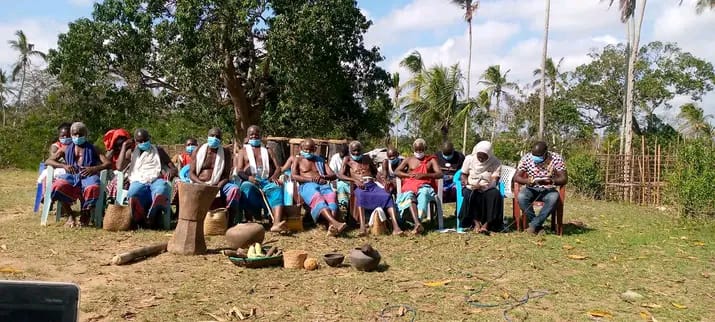
Some Kaya Elders at a training from health officers at Rabai Sub-County Hospital. Photo by Anthony Zoka
“We take every opportunity to spread the message in community meetings, at women’s groups or even at social gatherings, where we discuss maternal health issues” says Garero.
He notes that their collaboration with Community Health Promoters (CHP), has further amplified their impact, making health education a staple in community gatherings.
“Many women preferred going to traditional birth attendants, who would often mislead them with superstitions rather than provide professional care,” Garero explains. “The health department enlisted our help to raise awareness among our people. We advised them on the importance of hospital births, and fortunately, they listened to us.”
“We often accompany CHPs to reinforce the importance of these health messages, especially for the women,” he adds.
Despite their noble efforts, Garero says the journey has had its share of challenges. He recounts how they faced resistance from parts of the community, accused of abandoning their cultural heritage.
“We were met with opposition, with some saying that as elders, we should uphold our traditions instead of following modern ways. But we told them that the world has changed, and we must adapt to it. So, we continued our advocacy,” he says.
Chimwaga Mwamuye, the public health officer in Rabai Sub-county, says pregnant women receiving care from traditional birth attendants was a norm in the area. This sometimes led to loss of life of both mother and child.
“There were pregnant women who would go to traditional birth attendants and get services including massages, which are dangerous for both the mother and the baby she is carrying. When they go there, they see no need to go to the hospital for prenatal clinics. They end up missing essential services like blood level checks and iron supplements if needed, as well as malaria prevention measures for pregnant women,” says Chimwaga.
By involving 13 kaya elders, six traditional birth attendants as well as Alice in reproductive health training and maternal health, a positive change was brought to the community.
The move to involve kaya elders in improving the lives of pregnant women and encouraging them to attend clinics in the area began approximately four years ago. They successfully integrated both modern and traditional ways through this collaboration. First, they educated the traditional birth attendants that some beliefs are outdated, such as massaging pregnant women, and in the process some ended up converting to become community health promoters like Alice.
“We made them understand that massaging pregnant women is risky. Instead, when the women come to them for such services, they should take them to the hospital for proper health check-ups for both the mother and the baby, and encourage them to follow up with their clinics until they give birth,” Chimwaga says.
Through this collaboration, Chimwaga says men with old-fashioned beliefs found it easier to embrace the teachings when approached by the kaya elders.
“After this collaboration, we saw an increase in the number of women coming to the clinic for antenatal and reproductive health services, because the women are now aware of the importance of receiving hospital care during pregnancy,” Chimwaga concludes.
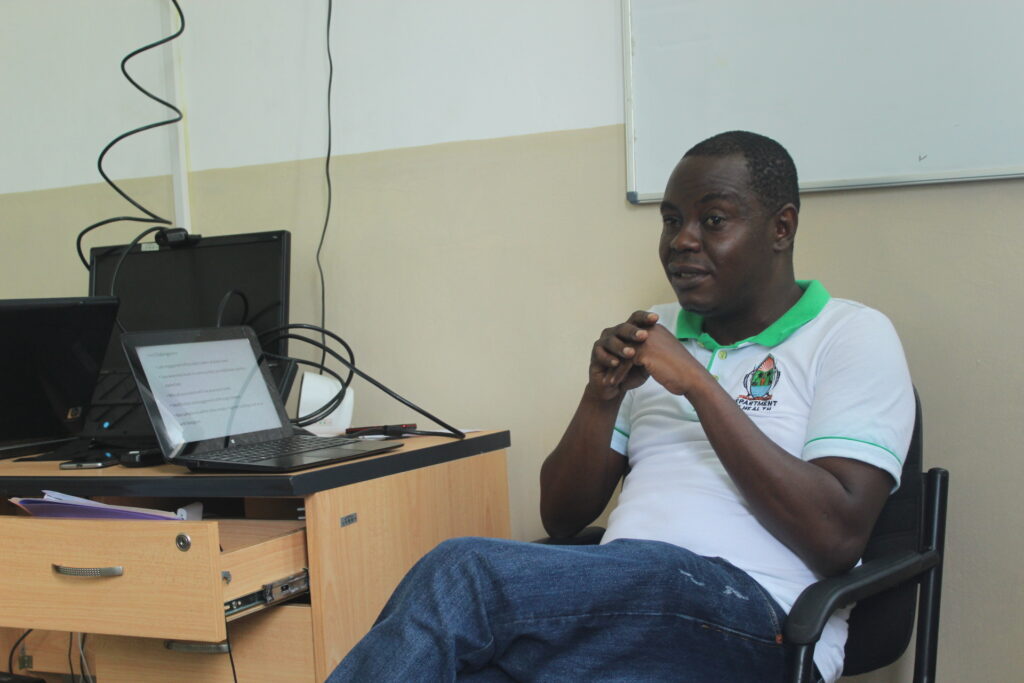
Chimwaga Mwamuye public health officer in Rabai Sub-county. Photo by Anthony Zoka.
Such initiatives have increased the percentage of women receiving antenatal care from a skilled provider in Kilifi County from 95.7% in the Kenya Demographic and Health Survey (KDHS) 2014 to 99.3% in KDHS 2022.
Khadija Juma embodies the changing landscape of maternal care in Rabai subcounty. Initially, she embraced traditional massages from traditional birth attendants encouraged by her mother-in-law.
However, unlike her mother-in-law, Khadija now advises her daughter-in-law against these traditional practices. This is due to the awareness she received from community health promoters and Kaya elders, who highlighted the risks and diseases associated with traditional birth attendants today.
Now Khadija opts for modern healthcare practices instead.
“I have a daughter-in-law now, and I don’t recommend massages at all because they are outdated practices,” Khadija shares proudly. “I advise her to begin prenatal clinic visits early, ensuring she receives all necessary medications for a safe childbirth. I’m delighted that her two children were born following hospital procedures,” she adds with a smile.
As a community health promoter, Alice attributes much of the success in improving maternal health, particularly the shift from traditional home deliveries to hospital visits and the support of community elders.
“The elders were educated by health workers and understood the need for change. They helped us spread awareness about the importance of hospital visits and abandoning traditional birth practices,” she notes.
“In the past, many women and babies died during childbirth, especially due to excessive bleeding. But now, thanks to education and awareness, we no longer experience such high numbers of mothers and their newborns losing their lives,” she concludes.
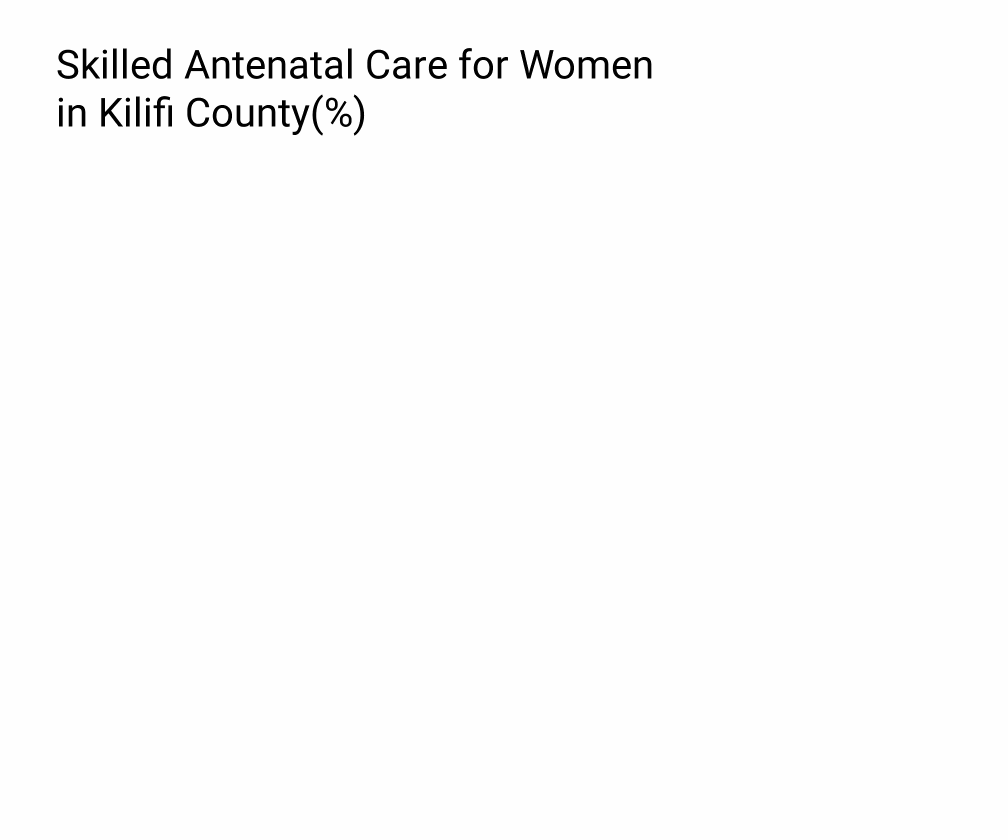
According to WHO, TBA training will provide the potential to decrease maternal and child mortality and morbidity, by dispelling ignorance, lowering harmful ritual practices, and promoting safe practices and use of the modern health care system.
Dr. Mburu agrees that integrating culture with the formal healthcare system could significantly benefit society, especially in rural areas where some women cannot easily access hospitals. She notes that many women tend to trust traditional birth attendants more than formal healthcare providers because these attendants live within their communities and have long-established relationships and respect.
“If we can provide traditional birth attendants with the right information and training, especially in identifying and managing complications, and encourage prompt referrals, it will greatly reduce maternal and neonatal deaths. They will be able to advise and guide women appropriately,” she says.
However, Dr. Mburu stresses the importance of traditional birth attendants recognizing the limits of their skills and knowing when to involve the formal healthcare system. “If they can advise women correctly, these women are more likely to listen and seek hospital care in a timely manner,” she says.
She also suggests establishing connections between traditional birth attendants and specific hospitals or healthcare professionals, enabling them to seek advice, counsel, or support whenever an issue arises in the community.
” TBAs could potentially act as doulas, providing company and making women feel more comfortable in an unknown environment. In short, well-trained traditional birth attendants can significantly improve maternal and neonatal outcomes,” Dr. Mburu concludes.
This story was made possible by the support of the UZIMA–DS project, funded by the national institute of Health (NIH).




